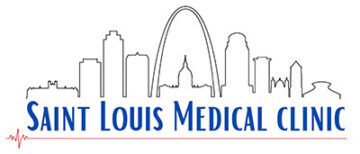Platelet-Rich Plasma for Osteoarthritis
Arthritis Specialists in St. Louis, MO
What is Platelet-Rich Plasma or PRP?
Osteoarthritis (OA) is the most common type of arthritis and a growing health problem for aging baby boomers. This progressive joint disease is caused by the degeneration of the smooth, shock-absorbing cartilage in the body’s joints. Osteoarthritis can cause pain and loss of function in affected joints. Stiffness and pain are the most common symptoms that cause people to seek medical care. Established treatments for OA include weight loss for patients who are overweight, physical therapy, medications (acetaminophen, nonsteroidal anti-inflammatory drugs, and other medications to treat pain), corticosteroid (“cortisone”) injections, Hyaluronic Acid (viscosupplementation or “gel”) injections, bracing, and joint replacement surgery. At this time, the only therapy that has been shown to slow the progressive worsening of OA is weight loss.
How Does PRP Work?
An emerging and effective treatment for OA is treatment with Platelet-Rich Plasma (PRP) injections. Through this process, the body’s own healing factors are concentrated and used to treat degenerative conditions. Degenerative conditions occur when tissues in the body begin to break down faster than they can repair themselves. Cartilage tissue has few cells to repair and maintain itself, and is exposed to large forces from bearing weight and the force of the muscles around the joint. A number of factors, including prior joint injury, being overweight, and heredity combine to cause softening and destruction of the joint cartilage, leading to OA.
PRP Results
Multiple studies done in countries around the world including high-quality, CDC-funded research done in the US show benefits of PRP when used to treat OA of the knee. There are now published studies showing greater and more sustained improvement of pain and function in patients who received PRP injection than in those who received viscosupplementation or placebo (saline) injections. Research into the means by which PRP might benefit OA shows that PRP stimulates an increase in the number and activity of cartilage cells (chondrocytes). There is also evidence that PRP counteracts the inflammatory effects of compounds that cause joint destruction.
Is PRP Safe?
PRP is a simple and safe treatment, administered in the office. It uses the patient’s own biological processes to improve pain and function. Platelets have proteins that start the healing process and control inflammatory processes. Biologically, this makes sense: the primary function of platelets is to cause the blood to clot when there is trauma. After trauma, there is a need to heal, which is why the platelets release growth factors to promote the healing process. There are now multiple studies showing effectiveness of PRP to improve pain and function in patients with arthritis of the knee.
What to Expect During PRP Treatment
The procedure is simple and causes little discomfort. The patient’s own blood is drawn and processed to separate the platelets. The blood is then spun in a centrifuge to produce a small volume of fluid with a high concentration of platelets, which is called “Platelet Rich Plasma.” Ultrasound guidance is used to accurately deliver the PRP into the joint. Processing the blood takes only 20 to 30 minutes. One should expect some soreness after the injection. It is important to avoid non-steroidal anti-inflammatory medications after PRP treatment, as this may interfere with the activity of the platelets. Speak with your treating physician about his or her philosophy on this prior to treatment.
PRP Treatment at St. Louis Medical Clinic
Dr. Anthony Margherita is a graduate of Georgetown University School of Medicine in Washington, D.C. and completed his Physical Medicine and Rehabilitation residency at the University of California at Davis. Dr. Margherita one of the most experienced physicians in the St. Louis area who specializes in treatment of osteoarthritis. He has been treating osteoarthritis with PRP injections successfully for several years, and uses a wide range of other treatments to help his patients with arthritis. Please call 314-432-1111 to schedule an evaluation.
Anthony Margherita MD, St. Louis Medical Clinic 3009 North Ballas Rd, 100B St. Louis, MO 63131

